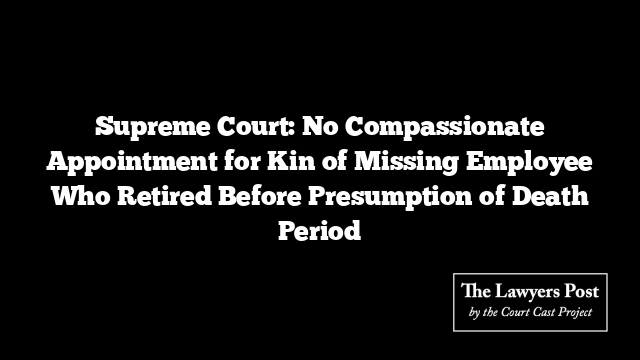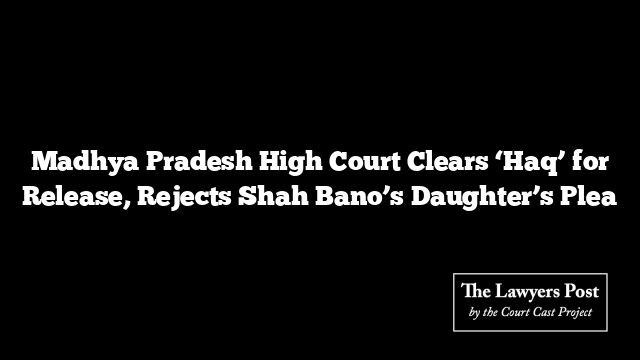The Supreme Court has ruled that the family of a missing government employee cannot seek a compassionate appointment if the employee retired before the seven-year period required to presume death in civil law.
A bench of Justices Pankaj Mithal and Prasanna B. Varale overturned a Bombay High Court (Nagpur Bench) order that had directed the Nagpur Municipal Corporation to grant employment to the son of Gulab Mahagu Bawankule, an employee who went missing on September 1, 2012.
Despite his disappearance, Bawankule continued to be treated as in service and formally retired on January 31, 2015. His family later received ₹6.49 lakh in retirement benefits and a monthly pension of ₹12,000. In 2022, a civil court declared him dead, though it did not specify the date of death. Based on this declaration, his son sought a compassionate appointment, which the High Court allowed by treating Bawankule as deceased from the date he went missing.
The Supreme Court disagreed with that view, stressing that the presumption of death in law only arises after seven years of disappearance. Since Bawankule retired before that period, he was deemed to have completed his service normally, not to have “died in harness.”
The Court further observed that compassionate appointment is not a right, but a welfare measure intended to ease the financial hardship that follows an employee’s death during active service. Once the family accepted full retirement and pensionary benefits, the judges said, it could not later claim to be in distress or seek employment under the compassionate appointment scheme.
“It is pertinent to note that despite having gone missing, he was treated as being in continuous service and duly retired on 31.01.2015. The family received all retiral dues and continues to draw pension. Having accepted that he retired, the claim for compassionate appointment cannot stand,” the Court held.
While setting aside the High Court’s direction, the bench allowed the civic body to independently consider the son’s case for any suitable employment—outside the compassionate appointment framework—subject to legal provisions and possible age relaxation.
The appeal by the Nagpur Municipal Corporation was accordingly allowed.




